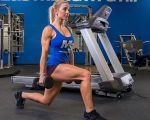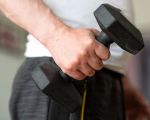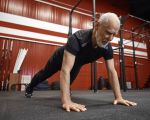- 1-Importance-of-Post-Workout-Nutrition
- 2-Key-Nutrients-for-Recovery
- 3-Top-Post-Workout-Recovery-Foods
- 4-Meal-Planning-for-Optimal-Recovery
- 5-Hydration-and-Recovery
- 6-Real-Life-Success-Stories
1. Importance of Post-Workout Nutrition
Proper post-workout nutrition plays a crucial role in muscle repair, energy restoration, and overall recovery after exercise. After intense training, your muscles experience micro-tears and glycogen depletion, requiring specific nutrients to repair and replenish. Consuming the right foods soon after a workout jumpstarts recovery, reduces soreness, and prepares your body for the next session.
Ignoring recovery nutrition can delay progress, increase fatigue, and raise injury risk, making it essential for athletes and fitness enthusiasts alike.
1.1 Timing Matters
Nutrition within the first 30 to 60 minutes post-workout is often called the “anabolic window,” a prime time to feed muscles with protein and carbohydrates for optimal repair and glycogen replenishment.
2. Key Nutrients for Recovery
Protein is fundamental for muscle repair, providing amino acids needed to rebuild muscle fibers. Carbohydrates restore glycogen stores, replenishing energy. Additionally, healthy fats support inflammation reduction, while antioxidants help combat oxidative stress from exercise.
Vitamins and minerals like magnesium, potassium, and vitamin C further support muscle function and immune health during recovery.
2.1 Balancing Macronutrients
A well-balanced recovery meal combines proteins and carbs with moderate fats to maximize absorption and effectiveness.
3. Top Post-Workout Recovery Foods
Some of the best post-workout recovery foods to eat include:
Lean meats: Chicken, turkey, and lean beef supply high-quality protein.
Eggs: Packed with complete proteins and essential amino acids.
Greek yogurt: Offers protein plus probiotics for gut health.
Sweet potatoes: Rich in complex carbs and antioxidants.
Fruits: Bananas and berries provide natural sugars, vitamins, and antioxidants.
Whole grains: Brown rice and quinoa for sustained energy replenishment.
3.1 Combining Foods for Maximum Effect
For example, pairing grilled chicken with sweet potatoes and steamed vegetables creates a nutrient-rich recovery meal that supports muscle rebuilding and energy restoration.
4. Meal Planning for Optimal Recovery
Planning your post-workout meals ahead of time ensures you consume recovery foods promptly. Meal prepping protein portions and keeping healthy carb sources accessible make it easier to stick to recovery nutrition goals.
Snacks like protein shakes, smoothies with fruit and protein powder, or nut butter on whole-grain toast are convenient and effective options when time is tight.
4.1 Adjusting Portions Based on Activity
Your recovery food quantity should correspond to your workout intensity and personal energy needs to avoid under or overeating.
5. Hydration and Recovery
Hydration is an often-overlooked aspect of post-workout recovery. Replenishing fluids lost through sweat helps maintain muscle function and supports nutrient transport. Drinking water alone is good, but electrolyte-rich beverages or natural sources like coconut water can better restore balance.
Hydrating alongside nutrient intake accelerates recovery and reduces muscle cramps and fatigue.
5.1 Monitoring Hydration Status
Signs of dehydration such as dark urine or dizziness should be addressed immediately with fluids and rest.
6. Real-Life Success Stories
Michael, a marathon runner, shares how incorporating specific post-workout recovery foods transformed his training. Adding protein-rich meals with complex carbs helped him recover faster and improve performance. He credits resources from Fitness for guiding his nutrition choices.
Similarly, Anna, a fitness coach, highlights the importance of timing and nutrient balance, advising clients to focus on whole foods rather than supplements alone.
6.1 Lessons from Experienced Athletes
Their experiences reinforce that consistent, mindful eating post-exercise is key to achieving fitness goals and sustaining long-term health.








